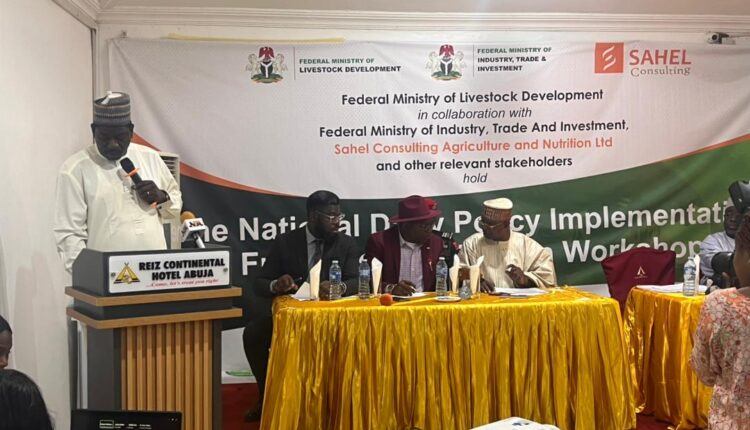Jega Backs Dairy Policy, Urges Institutional Reform, Private-Sector Innovation
The Special Adviser to the President on Livestock Development and Co-Chairman of the Presidential Livestock Reforms Implementation Committee, Prof. Attahiru Jega, OFR, has thrown his weight behind the new National Dairy Policy Implementation Framework, describing it as a crucial step toward achieving food security, job creation, and national prosperity under President Bola Ahmed Tinubu’s Renewed Hope Agenda.
Delivering a goodwill message at the National Dairy Policy Implementation Framework Validation Workshop held at the Riez Continental Hotel, Abuja, Prof. Jega said the framework—anchored on 11 strategic pillars—represents a decisive shift toward building a modern, productive, and inclusive livestock economy.
Represented by the Director, Dairy Research and Development Center, ATBU Bauchi and Member Presidential Livestock Reforms Implementation Committee, Prof Demo Kalla, he said,
“The dairy industry is not just about milk—it is about livelihoods, nutrition, empowerment, and opportunity,” Jega stated. “With effective implementation, this policy will empower farmers, create decent jobs for youth and women, and reduce our dependence on imports.”
He commended the Federal Ministry of Livestock Development, the Federal Ministry of Industry, Trade and Investment, and other stakeholders for their collaboration in reviewing and validating the framework, which he said “marks a vital milestone toward achieving a sustainable and inclusive dairy economy for Nigeria.”
Highlighting the importance of institutional reform, Jega announced that the policy proposes the creation of a National Dairy Development and Milk Marketing Board to coordinate value chain activities, and a National Dairy Development Fund (NDDF) to provide sustainable financing for the sector.
“These institutions will serve as the twin pillars of coordination and creative funding needed to drive transformation,” he added.
He emphasized that while government must provide an enabling environment, the private sector should lead innovation, investment, and operational growth.
Drawing lessons from countries such as India, Kenya, Uganda, Rwanda, and Ethiopia, Jega said Nigeria can achieve similar success by combining strong institutional leadership with private initiative and cooperative development.
The former INEC Chairman further called for data-driven decision-making, import substitution, and local content development, in line with Executive Order No. 5, to empower local farmers, processors, and researchers in building a competitive dairy industry.
He also stressed the need for market surveillance and quality assurance systems to eliminate substandard imports and protect Nigerian consumers, while urging closer collaboration among universities, research institutions, and private enterprises to drive innovation and technology adoption.
Jega proposed that Nigeria should seek membership in the International Dairy Federation (IDF) to enhance knowledge sharing, benchmarking, and participation in global dairy governance.
“Ultimately, this policy is about people—creating jobs, improving nutrition, and building a sustainable livestock economy that works for every Nigerian,” he affirmed.
He concluded by reaffirming the Presidential Livestock Reforms Implementation Committee’s full commitment to supporting the framework’s rollout and achieving the President’s vision of a transformed agricultural sector anchored on inclusive growth and food security.

